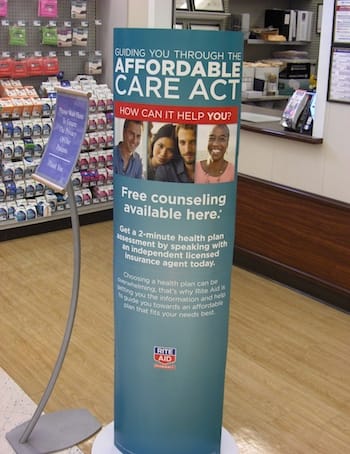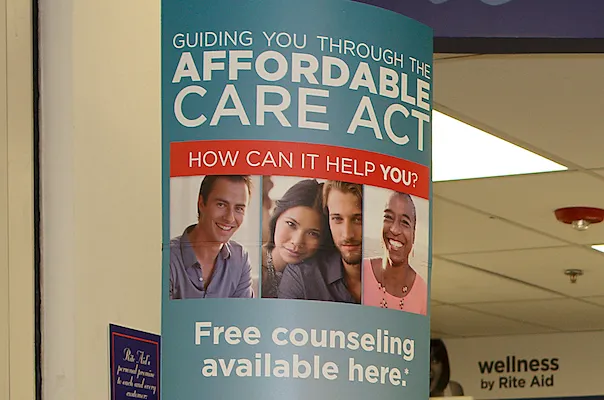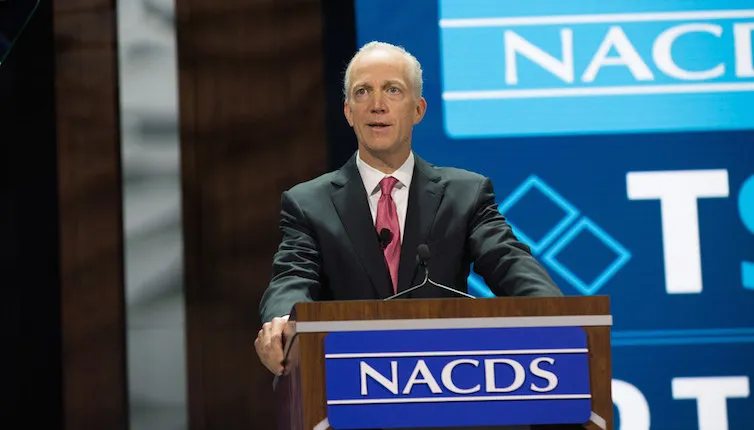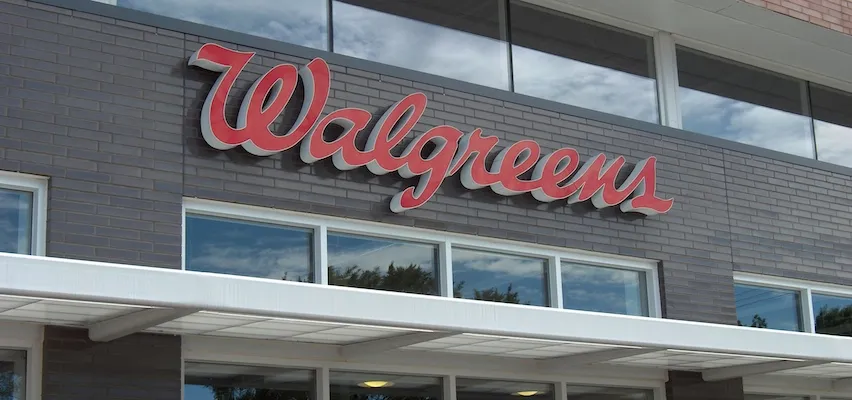WASHINGTON — The pullback of health insurance companies from the Affordable Care Act has focused a harsh light on President Obama’s signature legislative achievement.
Most recently, Aetna Inc. decided to drop out of ACA health insurance exchanges in 11 states with about two-thirds of the 778 counties where it now offers coverage. It will continue to offer plans in Delaware, Iowa, Nebraska and Virginia.
UnitedHealth Group Inc. and Humana Inc. have also pulled back from the marketplaces, as have smaller insurers, including some that have gone out of business.

Aetna retreated following a second quarter pretax loss of $200 million and total pretax losses of more than $430 million since January 2014 in individual products. “Providing affordable, high-quality health care options to consumers is not possible without a balanced risk pool,” said chairman and chief executive officer Mark Bertolini.
Fifty-five percent of Aetna’s individual on-exchange membership is new in 2016, and in the second quarter the company saw individuals in need of expensive care represent a larger share of its on-exchange population, he said. “This population dynamic, coupled with the current inadequate risk adjustment mechanism, results in substantial upward pressure on premiums and creates significant sustainability concerns.”
“More than 40 payers of various sizes have similarly chosen to stop selling plans in one or more rating areas in the individual public exchanges over the 2015 and 2016 plan years, collectively exiting hundreds of rating areas in more than 30 states,” he added.
Almost one in three counties nationwide will probably have only one company offering plans on exchanges in 2017, according to an analysis from the Kaiser Family Foundation. The study found there could be a lack of choice in 31% of counties next year, and there may be only two options in another 31%. In 2016, by contrast, only 7% of counties had one insurer and 29% had two.
But with the withdrawals calling into question the ACA’s viability, Kaiser Family Foundation president and CEO Drew Altman said while the health insurance marketplaces face challenges, they are just one segment of the ACA “and they are not having trouble in all states.” The impact of the insurance pullbacks next year will be mostly felt by residents of rural areas, he noted.
Altman wrote in a Wall Street Journal Think Tank blog that the Obama administration correctly points out that the vast majority of ACA participants will be sheltered from premium increases by federal subsidies if they enroll in a low-cost plan. He also said Obama has advocated increased financial aid for people who can’t afford coverage with existing subsidies.
The contention that the law is failing “seems to conflate the marketplaces with the ACA overall,” he blogged. “It’s hard to call the entire law, which covered 20 million more people and reformed insurance rules, a failure.”
That notwithstanding, overall ACA enrollment has been a disappointment. The number of people signed up is less than half the initial forecast, which has hurt insurers that rely on healthy plan members to offset the cost of coverage for people requiring expensive care.
The Congressional Budget Office three and one-half years ago predicted that 24 million people would purchase coverage through exchanges by 2016. As of late March the figure was 11.1 million.
With the fourth annual open enrollment period starting on November 1, the White House says it will target more Millennials, especially people turning 26 and moving off parental plans. Government officials say they will send letters about exchanges to people who paid the tax penalty for skipping coverage — a group that skews to young adults.
Marilyn Tavenner, president and CEO of America’s Health Insurance Plans, called the administration’s latest assessment of exchange cost trends “overly optimistic.” She said, “The reality is that the risk pool has not significantly improved. That is a serious concern.”
Among insurers that claim they are losing money on exchanges is Health Care Service Corp., which operates nonprofit Blue Cross and Blue Shield plans in Illinois, Montana, New Mexico, Oklahoma and Texas. It said it lost $1.5 billion in 2016 on individual exchange plans. In some states, carriers have boosted original rate requests for next year because, they say, costs are outrunning recent projections.
In Tennessee, Cigna has sought rate increases averaging 46%, double what it asked for June, and Humana is asking for an average increase of 44%, up 15 points from June. The other major insurer in the Volunteer State, BlueCross BlueShield of Tennessee, said it was maintaining its request for increases averaging 62%.








